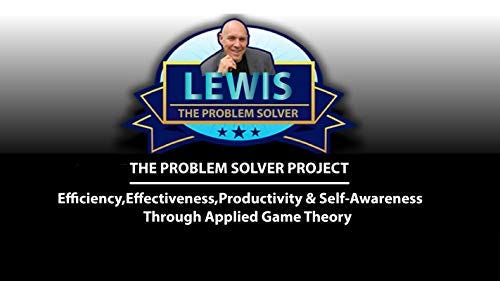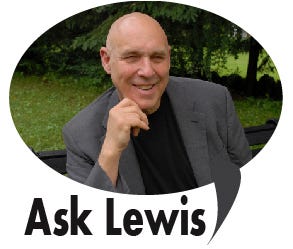Ever since I developed an interest in applied game theory, I have researched the idea of logic, rationality, and what makes people make intuitively, emotionally, and objectively driven choices
That’s how I came across the concept of rational choice theory. Also known as the theory of rational choice, choice theory, or rational action theory, This a framework for understanding and often formally modeling social and economic behavior. The basic premise of rational choice theory is that social behavior formed by combining several (typically disparate) elements (social aggregate behavior) results from the behavior of individual actors (players), each of whom is making their individual decisions. The theory also focuses on the determinants of individual choices.
There are many preferences among the available choice alternatives. These alternatives allow each individual to state which option they prefer. These preferences are assumed to be complete.
Put simply, when I say that preferences are assumed to be complete I mean:”
1. the person can always say which of two alternatives they consider preferable
2. that neither is preferred to the other
3. if option A is preferred over option B and option B is preferred over option C, then A is preferred over C).
When making a choice it is assumed that a rational agent (player) will take account of available information, probabilities of events, and potential costs and benefits in determining preferences, and to act consistently in choosing the self-determined best choice of action.
In simpler terms, this theory dictates that every person, even when carrying out the most mundane of tasks, perform their own personal cost and benefit analysis in order to determine whether the action is worth pursuing the best possible outcome. And following this, a person will choose the optimum venture in every case. This could culminate in a student deciding on whether to attend a lecture or stay in bed, a shopper deciding to provide their own bag to avoid the five pence charge or even a voter deciding which candidate or party based on who will fulfill their needs the best on issues that have an impact on themselves especially.
For the skilled critical thinker, success begins with small steps. Below Amardeep Parmar offers 20 realistic micro habits to live your best life.
Rationality is widely used as an assumption of the behavior of individuals in HAGT (Harrison’s Applied Game Theory) and microeconomic models analyses.
Microeconomics (from Greek prefix mikro- meaning “small” + economics) is a branch of economics that studies the behavior of individuals and firms in making decisions regarding the allocation of scarce resources and the interactions among these individuals and firms.
Rational choice appears in almost all economics textbooks concerned with how humans make choices, and in research in decision science.
Gary Becker was an early proponent of applying rational actor models more widely. Becker won the 1992 Nobel Prize for his studies of discrimination, crime, and human capital. Human capital is an intangible asset or quality not listed generally measured by a group, or on a company’s balance sheet. It can be classified as the economic value of an individual’s experience and skills. This includes assets like education, training, intelligence, skills, health, and other things employers value such as loyalty and punctuality. IN HAGT we use 25 Core Resources that include time, space, information, influence, and specialized skills.
Here is an introduction with a short video explanation of the basics of game theory. Please click below to learn more…
If you are looking for tips, tools, techniques, strategies to help you to live your best possible life please join our information-packed FaceBook Self Improvement for Beginners Group. (Advanced folks are welcome too!)
— — —
Author: Lewis Harrison is a Collaborative Futurist, Results Coach, Mentor to Corporate Executives and Philanthropic Organization on Predictive analytics, Professional Problem-Solver, Game Theory/Strategist. He has a passion for self improvement and personal growth
Let Me Become Your Personal Mentor.
Learn About My Structured Life Strategies Playbook Mentoring Course…
Get World Class Training in Becoming more effective, efficient, productive, self-aware, and happy
If you have an interest in having a more mindful and meaningful life, schedule an interview with me, and let’s explore together how the Life Strategies Playbook Mentoring Program. can transform your life.
Just e-mail me at LewisCoaches@gmail.com and schedule the time that works best for you.
If you are not ready to take this step, you can still get plenty of cost-free information on life strategies, lifehacking, and applied game theory by joining my 18,000 subscribers who read the “Ask Lewis” newsletter.
—
I also invite you to read, my regular life strategy blogs and follow my posts and vlogs throughout the social network:
YouTube: The “Asklewis Lewis Harrison” channel,
Facebook Fan page: https://www.facebook.com/AskLewis/
Group and Forum: “Lewis Harrison’s Applied Game Theory” https://www.facebook.com/groups/602287903244843/
Twitter: https://twitter.com/RealUGuru
Substack articles: https://lewisharrison.substack.com/
Linkedin: https://www.linkedin.com/in/lewis-harrison-01601040/
Free Newsletter: https://exciting-mover-2586.ck.page/6a672cc4bf
—
Contact Information
Thanks for allowing me to share my knowledge with you. If you want to contact me, simply drop me an email…
Thank you for your support! It truly means the world to me! Please let me know if you have any questions by responding by emailing me at LewisCoaches@gmail.com. I will do my best to answer all of them.
Lewis Harrison – www.asklewis.com











